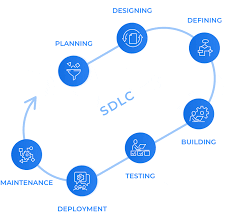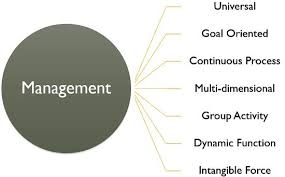Unlocking Success: The Power of a Software Outsourcing Company
The Benefits of Hiring a Software Outsourcing Company
In today’s fast-paced business environment, companies are constantly looking for ways to stay competitive and innovative. One popular strategy that many businesses are adopting is outsourcing software development to specialized firms.
A software outsourcing company is a third-party organization that provides software development services to businesses looking to enhance their digital products or create new solutions. These companies typically have a team of skilled developers, designers, and project managers who work collaboratively to deliver high-quality software products.
Benefits of Hiring a Software Outsourcing Company:
- Cost-Effectiveness: Outsourcing software development can be more cost-effective than hiring an in-house team. Companies can save on overhead costs such as salaries, benefits, and infrastructure by working with an external provider.
- Access to Expertise: Software outsourcing companies often have specialized expertise in various technologies and industries. By partnering with these firms, businesses can gain access to a diverse talent pool and leverage the latest tools and techniques.
- Faster Time-to-Market: Outsourcing software development allows companies to accelerate their product development cycles. Experienced outsourcing firms can quickly ramp up resources and streamline the development process, leading to faster time-to-market for new products.
- Scalability: Businesses can easily scale their software development projects up or down based on their needs when working with an outsourcing company. This flexibility enables companies to adapt to changing market conditions and customer demands more effectively.
Overall, partnering with a software outsourcing company can provide businesses with the resources, expertise, and agility needed to succeed in today’s digital landscape. By leveraging external talent and capabilities, companies can drive innovation, reduce costs, and achieve their strategic goals more efficiently.
9 Essential Tips for Choosing and Working with a Software Outsourcing Company
- Clearly define your project requirements and goals before selecting an outsourcing company.
- Research and compare multiple outsourcing companies to find the best fit for your project.
- Check the outsourcing company’s track record, client testimonials, and reviews.
- Ensure that the outsourcing company has expertise in the technology stack required for your project.
- Establish clear communication channels and set expectations from the beginning of the partnership.
- Consider time zone differences when working with an offshore outsourcing company.
- Include legal protection clauses in the contract to safeguard your intellectual property rights.
- Monitor progress regularly and provide feedback to ensure alignment with project milestones.
- Build a strong relationship with the outsourcing team to foster collaboration and successful outcomes.
Clearly define your project requirements and goals before selecting an outsourcing company.
It is crucial to clearly define your project requirements and goals before selecting an outsourcing company for software development. By having a detailed understanding of what you aim to achieve, including specific features, functionalities, and timelines, you can effectively communicate your expectations to potential partners. This clarity not only helps in identifying the right outsourcing company that aligns with your project needs but also ensures a smoother development process and successful outcome.
Research and compare multiple outsourcing companies to find the best fit for your project.
When considering software outsourcing, it is essential to conduct thorough research and compare multiple outsourcing companies to identify the best fit for your project. By evaluating different providers based on their expertise, experience, pricing, and past projects, you can make an informed decision that aligns with your specific requirements and goals. This diligent approach ensures that you partner with a software outsourcing company that not only meets but exceeds your expectations, leading to successful project outcomes and long-term satisfaction.
Check the outsourcing company’s track record, client testimonials, and reviews.
When considering outsourcing software development, it is crucial to assess the outsourcing company’s track record, client testimonials, and reviews. By examining past projects and feedback from previous clients, businesses can gain valuable insights into the outsourcing company’s capabilities, reliability, and quality of work. Client testimonials and reviews provide firsthand accounts of the outsourcing company’s performance, helping companies make informed decisions and choose a partner that aligns with their needs and expectations. Conducting thorough research on the outsourcing company’s track record can significantly mitigate risks and ensure a successful collaboration.
Ensure that the outsourcing company has expertise in the technology stack required for your project.
When considering outsourcing software development, it is crucial to ensure that the chosen outsourcing company possesses expertise in the specific technology stack required for your project. Having a deep understanding of the technology stack ensures that the outsourcing team can effectively navigate and utilize the tools and frameworks necessary to deliver a successful end product. By selecting a company with proficiency in your project’s technology stack, you can enhance collaboration, streamline development processes, and ultimately achieve better outcomes for your software project.
Establish clear communication channels and set expectations from the beginning of the partnership.
Establishing clear communication channels and setting expectations from the beginning of a partnership with a software outsourcing company is crucial for a successful collaboration. By clearly defining roles, responsibilities, project timelines, and deliverables upfront, both parties can ensure alignment and minimize misunderstandings throughout the development process. Clear communication channels, whether through regular meetings, progress reports, or dedicated project management tools, help foster transparency and enable efficient decision-making. Setting expectations early on not only helps manage risks but also builds trust and lays the foundation for a productive and mutually beneficial relationship between the client and the outsourcing company.
Consider time zone differences when working with an offshore outsourcing company.
When collaborating with an offshore outsourcing company, it is essential to take into account time zone differences. Understanding and planning for these variations in working hours can help ensure effective communication, timely project updates, and seamless coordination between teams located in different regions. By being mindful of time zone disparities, businesses can optimize productivity, minimize delays, and foster a more efficient workflow when engaging with offshore outsourcing partners.
Include legal protection clauses in the contract to safeguard your intellectual property rights.
When engaging with a software outsourcing company, it is crucial to include legal protection clauses in the contract to safeguard your intellectual property rights. These clauses establish clear ownership of the developed software and any related assets, ensuring that your company retains control over its proprietary information and innovations. By outlining specific terms regarding intellectual property rights in the contract, you can mitigate the risk of unauthorized use or disclosure of sensitive data and technology, providing a solid legal foundation for protecting your valuable assets throughout the outsourcing partnership.
Monitor progress regularly and provide feedback to ensure alignment with project milestones.
Monitoring progress regularly and providing feedback are crucial aspects of ensuring alignment with project milestones when working with a software outsourcing company. By staying actively involved in the development process and regularly assessing the project’s status, businesses can identify any potential issues early on and make necessary adjustments to keep the project on track. Providing timely feedback to the outsourcing team helps maintain clear communication, address any concerns promptly, and ensure that the final deliverables meet the desired specifications and deadlines. This proactive approach fosters collaboration, transparency, and accountability, ultimately leading to successful project outcomes.
Build a strong relationship with the outsourcing team to foster collaboration and successful outcomes.
Building a strong relationship with the outsourcing team is crucial to fostering collaboration and achieving successful outcomes in software development projects. By establishing clear communication channels, setting mutual goals, and nurturing trust and respect, businesses can create a positive working environment that encourages creativity, innovation, and efficient problem-solving. Investing time and effort in building a strong relationship with the outsourcing team not only enhances project delivery but also lays the foundation for long-term partnerships that drive continuous improvement and success.








